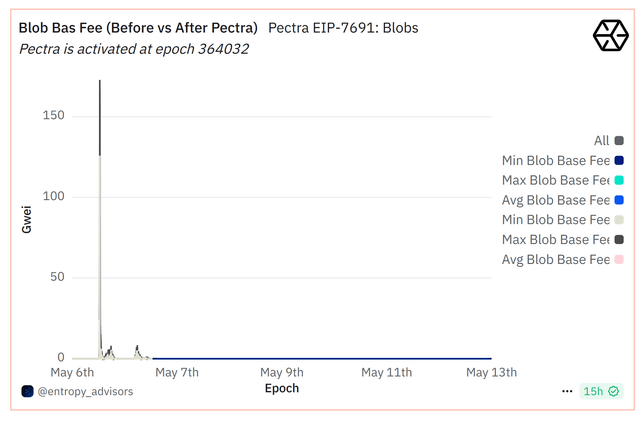Key takeawaysFake crypto investment platforms give themselves away in a few obvious ways.Many use fake reviews, incorrect contact information and unrealistic promises to lure you in.The best approach is a healthy dose of skepticism. Watching for these red flags will keep you safe while investing.The burgeoning cryptocurrency market, with its lack of centralized authority and a constant flow of inexperienced users, makes digital assets a prime target for scammers. Fake crypto investment platforms are a common scam method, masquerading as useful services for crypto traders.Before signing up for any crypto investment platform, it’s essential to learn the telltale signs of a scam. This article will detail what to watch out for and how to verify if a crypto investment platform is legitimate. These tips will teach you how to avoid crypto scams. Did you know? The FTC hosts a crypto scam detection guide that allows you to view common crypto scams, sorted by company name, scam type and other keywords. How to spot a crypto scamHere are 10 crypto investment scam red flags to watch for when choosing a cryptocurrency investment platform.1. Promising unrealistic returnsWhat to watch for: Fake crypto investment platforms will try to entice you with unrealistic promises, like “Make 1 Bitcoin in just a few days!” A legitimate crypto exchange won’t need to sell you with fake deals.How to verify: The platform’s services should speak for themselves. None of them will give you a special advantage over the other, especially not one that can net you a Bitcoin just days after signing up. This is one of those prime crypto scam warning signs.2. Fake team membersWhat to watch for: It’s easy to make an “our team” page on any website, let alone one offering a decentralized service. At a minimum, these pages should include photos, descriptions and links to LinkedIn or other verified social media platforms.How to verify: Double-check team pages for legitimacy. Some scammers might also set up fake social media pages, so scan those for authentic interactions and delve deep into each team member’s project history.3. Inconsistent white paperWhat to watch for: Let’s be honest, most scammers won’t expect customers to read their project white paper. It’s probably something they threw together in ChatGPT or even plagiarized from a legitimate project.How to verify: Read a project’s white paper in-depth and watch for legitimate use cases. Make sure the project solves a real problem, has a legitimate purpose and a realistic plan for the future. Don’t fall for buzzwords!Did you know? Justin Sun, founder of Tron’s long-standing blockchain platform, has been accused of plagiarizing Ethereum’s white paper.4. False endorsementsWhat to watch for: Just as it’s super easy to fabricate an “our team” page, scammers can place fake endorsements all over their home page. It’s as quick as copying and pasting a company logo like Forbes.How to verify: Instead of trusting an exchange’s webpage, look up news releases and other proof of these supposed endorsements. Cointelegraph provides a directory of legit exchanges to help you identify fake crypto websites.5. Lack of regulatory informationWhat to watch for: Now, regulatory requirements may vary depending on whether you’re looking at a centralized or decentralized platform, but if you’re looking at the former, know that centralized platforms cannot operate without regulatory approval from your government.How to verify: Typically, you can check a government database to confirm if a platform is licensed. If it’s not, it may not be trustworthy. For example, the CEO of Tether (USDT) refuses to comply with the European Union’s Markets in Crypto-Assets (MiCA) framework. The company is known for its resistance to comply with regulatory policies, causing industry-wide suspicion.6. Pushy sales tacticsWhat to watch for: Pushy sales tactics are a big red flag. If a platform reaches out to you through social media, such as through a direct message on X, Discord or Telegram, you can be sure it’s a scam. Scammers might claim to be an employee or crypto influencer ready to provide you with an “exclusive offer” or “limited time deal.” How to verify: A real exchange would never reach out to potential customers like this, especially via social media. Social media DMs are widespread crypto scam tactics.Did you know? Some top crypto scams in 2024 were phishing attacks, rug pulls and fake airdrops. 7. Fake location/contact infoWhat to watch for: Crypto investment platforms with a real product, even decentralized ones, will have contact information. Even Uniswap has a support email with which to get in touch. Centralized entities should also have addresses of their offices, ones that you can cross-reference with Google Maps for legitimacy purposes. How to verify: If a crypto investment platform is missing any contact information, consider that a red flag. This is an easy sign to miss.8. Fake reviewsWhat to watch for: Tech products, blockchain-based and otherwise, feature user reviews front and center on their websites. That said, you can tell if these are real or manufactured. Keep an eye out for reviews with repetitive language and a lack of a critical eye, which only praise the platform. Glowing reviews are often fake, possibly even written by AI.How to verify: Search for platform reviews on Reddit and other social media sites. Other users will tell you if the platform is legit or not. If a platform has no social media accounts, there is more reason to avoid it.9. Fake airdrops or giveawaysWhat to watch for: Some fraudulent platforms may offer airdrops or giveaways as promotions to attract positive attention. However, participating in the fake airdrop might require inputting a wallet seed phrase or private key. How to verify: Legitimate airdrops will be announced on social media platforms like X, the platform’s blog on Medium or its official website. They’ll only ask for your wallet address, nothing more.3. No fiat offrampingWhat to watch for: A crypto exchange with no fiat offramping means it’s not registered with local financial institutions. The platform might demand that you only work in crypto.How to verify: If you sign up for an exchange and it immediately asks you to send crypto into your wallet on the platform instead of linking a payment method like a bank or card, this is a big red flag.Cryptocurrency investment scams thrive on urging you to make rash decisions. It’s always best to be skeptical when choosing where to trade, invest or hold your crypto. Take your time, do your research, and double-check every piece of information a platform provides. These crypto fraud prevention tips will help keep you safe, protecting your assets and peace of mind. Use them to create a crypto scam checklist.This article does not contain investment advice or recommendations. Every investment and trading move involves risk, and readers should conduct their own research when making a decision.








